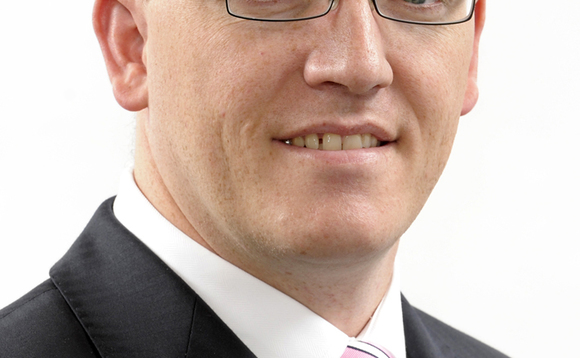
German PE faces challenges in 2013

German private equity is poised for a decisive year, awaiting both the implementation of the AIFM Directive and the election of a new chancellor and Bundestag, while struggling against the backdrop of Europe’s worsening economic outlook.
However, industry professionals are positive about the New Year, which they hope will see a similar volume and value of deals as 2012 and could see some new life breathed into the market.
Christian Schatz, partner at SJ Berwin (pictured), says, "The equity is there. We had a lot of very successful fundraisings in Germany last year and there's a lot of deal activity too. In terms of target companies, we are only at the beginning of tapping the market's full potential. There are some challenges with leverage, but overall I feel positive about the coming year."
Hanno Schmidt-Gothan, founding partner at Perusa Partners, thinks there will be more primary deals in the coming year and the value of deals could pick up, but the exits market may be slower: "I think we will see a growing number of deals on the entry side from different sources, mainly industrial, but exits could prove difficult for private equity. Investors are holding back because business prices are high and there is a lack of bank financing."
The local industry is poised for a decisive year, with AIFMD and elections on the horizon
Industry professionals agree that the slow pace of mega-deals – seen sparingly in Germany during 2012 with just the BSN Medical and Open Grid Europe buyouts exceeding €1bn – is likely to continue, though some SBOs and possible DAX-listed carve-outs may come to market. However, none of those interviewed by unquote" believe Germany will see more than a handful of mega-buyouts in 2013.
Bank financing continues to be a problem across Europe – it has hit Germany particularly hard and the situation is unlikely to improve. "The Landesbanken and those that had a real guarantee by the German government in the past are being told to clean up their act. They're not lending to SMEs anymore, which is a big problem," says Hans van Swaay, partner at Lyrique Private Equity.
However, this Europe-wide phenomenon could lead to a shift in private equity investment strategies. Specialised funds such as private debt funds could emerge more strongly and start to facilitate bigger buyouts. Schmidt-Gothan says, "There will certainly be a movement in the market. It remains to be seen whether this will work economically with all players but there is definitely experimentation with all sorts of exotic funds and financing methods." Van Swaay adds, "The returns for debt funds are quite interesting. They've got a risk profile similar to any odd debt but they can ask for more money for it."
As with most things new, there is doubt from some players, for whom the conventional method of deal-doing has worked well so far. "I think a good company will always find a bank to support it. As a sponsor of lower mid-market deals, we therefore would not prefer to take on a private debt investor because we could not be sure of any ulterior motives that they may have, such as future debt-for-equity swaps," says Martin Olbort, partner at Pinova Capital.
Latest News
Stonehage Fleming raises USD 130m for largest fund to date, eyes 2024 programme
Multi-family office has seen strong appetite, with investor base growing since 2016 to more than 90 family offices, Meiping Yap told Unquote
Permira to take Ergomed private for GBP 703m
Sponsor deploys Permira VIII to ride new wave of take-privates; Blackstone commits GBP 200m in financing for UK-based CRO
Partners Group to release IMs for Civica sale in mid-September
Sponsor acquired the public software group in July 2017 via the same-year vintage Partners Group Global Value 2017
Change of mind: Sponsors take to de-listing their own assets
EQT and Cinven seen as bellweather for funds to reassess options for listed assets trading underwater







